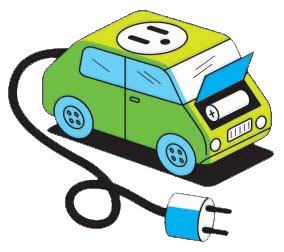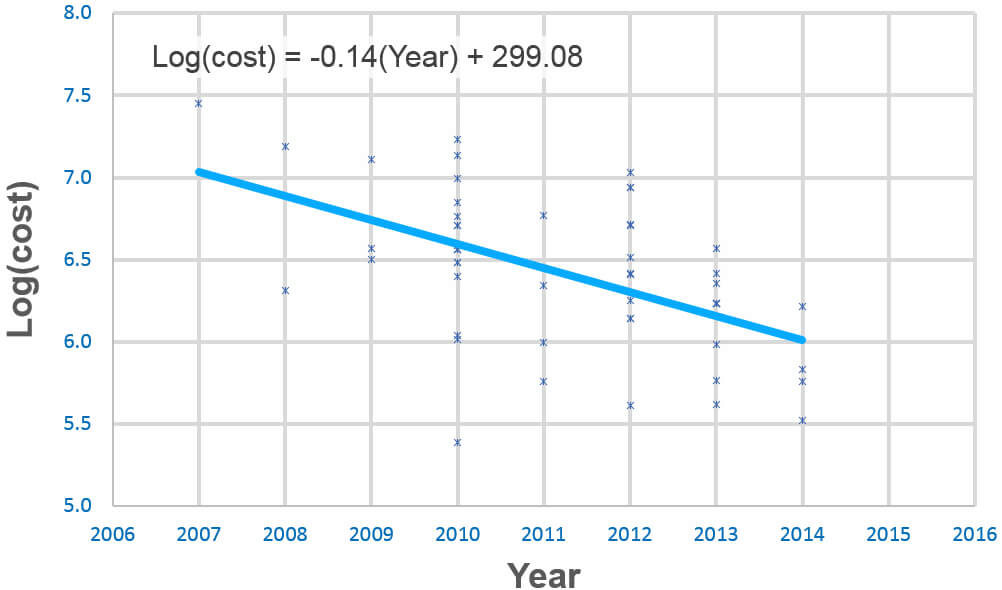 The Mack Institute’s Program on Vehicle and Mobility Innovation (PVMI) is sponsoring a new technology forecasting challenge with Good Judgment Inc., focused on the question of when (and whether) electric vehicles (EVs) will achieve mass market acceptance. This “Electric Vehicle Tipping Point” Challenge includes questions on consumer behavior, technological developments, and government policies that have the potential to propel the trend forward — or hold it back. (Read more about the Challenge and how to participate here.)
The Mack Institute’s Program on Vehicle and Mobility Innovation (PVMI) is sponsoring a new technology forecasting challenge with Good Judgment Inc., focused on the question of when (and whether) electric vehicles (EVs) will achieve mass market acceptance. This “Electric Vehicle Tipping Point” Challenge includes questions on consumer behavior, technological developments, and government policies that have the potential to propel the trend forward — or hold it back. (Read more about the Challenge and how to participate here.)
One key factor affecting consumer acceptance of electric vehicles is the price and performance of batteries, so the EV Challenge includes a question about the cost per kilowatt-hour (KwH) in 2016. Here we describe the methodology that was used to calculate the industry-wide average cost of lithium-ion (Li-ion) battery packs in 2014 as reported in a recent article in Nature Climate Change (Nykvist and Nilsson, 2015). This methodology will be used by PVMI researchers to resolve this Challenge question, via calculating the industry-wide average cost of battery packs in 2016 based on more recent data.
Data Sources
 Nykvist and Nilsson gathered data on cost-estimates for lithium-ion (Li-ion) battery packs from academic articles, industry reports, news items with statements of cost-estimates from experts.
Nykvist and Nilsson gathered data on cost-estimates for lithium-ion (Li-ion) battery packs from academic articles, industry reports, news items with statements of cost-estimates from experts.
The first set of cost-estimates were obtained from the following six academic articles:
- Weiss, M. et al. On the electrification of road transport – Learning rates and price forecasts for hybrid-electric and battery-electric vehicles. Energy Policy 48, 374-393 (2012).
- Gerssen-Gondelach, S. J. & Faaij, A. P. C. Performance of batteries for electric vehicles on short and longer term. Power Sources 212, 111-129 (2012).
- Catenacci, M., Verdolini, E., Bosetti, V. & Fiorese, G. Going electric: Expert survey on the future of battery technologies for electric vehicles. Energy Policy 61, 403-413 (2013).
- Tran, M., Banister, D., Bishop, J. D. K. & McCulloch, M. D. Realizing the electric-vehicle revolution. Nature Clim. Change 2, 328-333 (2012).
- Thiel, C., Perujo, A. & Mercier, A. Cost and CO2 aspects of future vehicle options in Europe under new energy policy scenarios. Energy Policy 38, 7142-7151 (2010).
- Nykvist, B. & Nilsson, M. The EV paradox_A multilevel study of why Stockholm is not a leader in electric vehicles. Innov. Soc. Transit. 14, 26-44 (2015).
Authors then used “Electric vehicle Li-ion battery cost” as keywords to identify additional academic articles from the Web of Science database. The same keywords were also used to identify additional articles, news items, and expert and industry statements from Google’s search engine and reviewing the first 100 hits. Since the battery requirements for hybrid vehicles are different from those for electric vehicles, the data on costs of battery packs used only in hybrid vehicles was not included in the analysis. However, when information on battery packs for both types of vehicles were combined into one cost estimate, that estimate was included in the analysis. This data was supplemented with additional cost estimates for individual car models such as Tesla Model S and Nissan Leaf based on public statements made by the company.
Aggregation Method
The method yielded 85 different references for cost-estimates between 2007 and 2014. Cost estimates whose methodology was unclear and those that duplicated data from another reference source were omitted from the analysis. For references that provided a range of costs, the mean value of the highest and lowest values in the range was used. All costs in foreign currencies were converted into US$ based on historical exchange rate data from US Federal Reserve, and all costs were inflation adjusted to 2014 US$ (as of October 2014). The final dataset for the analysis comprised of 53 unique cost-estimates between 2007 and 2014. The cost data was then log transformed and fitted using a simple regression equation of the trend line of the form shown in the figure below.

Based on the trend line, there was a 14% annual decline in the cost of battery packs between 2007 and 2014, and the industry-wide average cost of battery packs in 2014 was US $410 per kWh.
The above mentioned methodology will be used to obtain data on the recent cost-estimates for 2014, 2015 and 2016, and to calculate the industry-wide average cost of battery packs in 2016. We will post an explanation of these results when the question is resolved.
Reference:
Nykvist, B., & Nilsson, M. Rapidly falling costs of battery packs for electric vehicles. Nature Climate Change, 5(4), 329-332.



